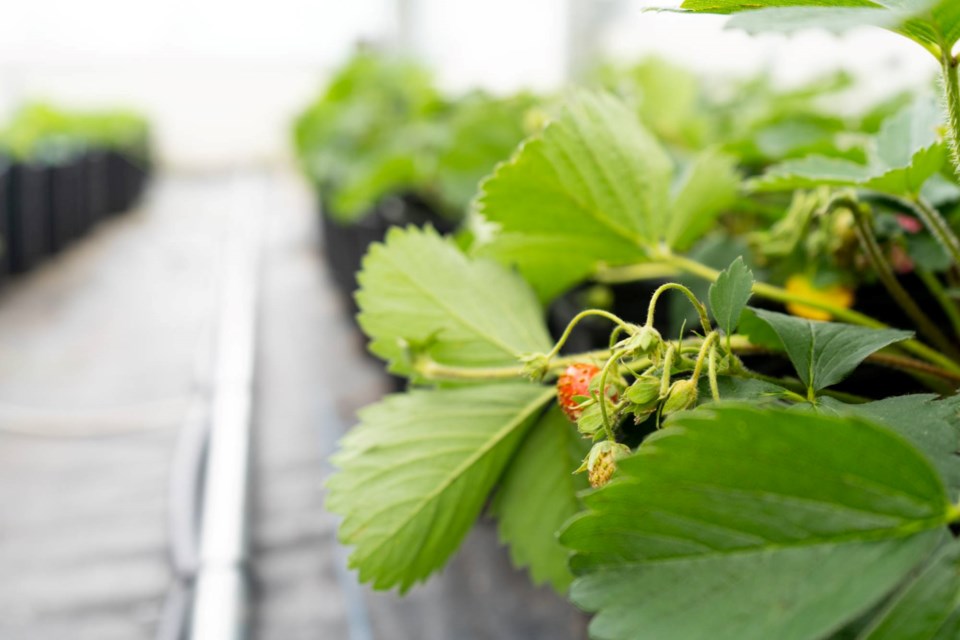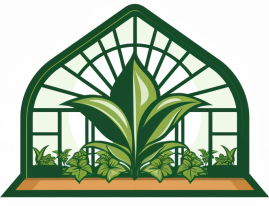
You’ve probably never thought about it, but growing berries year-round in extreme climates is a challenge. However, a coalition of Northern Ontario researchers is taking on this challenge with a $1 million funding grant. Led by Collège Boréal and partnered with organizations such as RAIN, Truly Northern Farms, and AgriTech North, they aim to develop an innovative hydroponics process suitable for extreme climates. With the funding coming from the Weston Family Foundation, this project not only aims to reduce the country’s reliance on imports but also address global environmental challenges related to food production. By testing a system of multi-layer hydroponic grow racks, water-cooled programmable lighting, and integrated pest management strategies, they hope to improve the economic viability of berry production. This 18-month research project is a step towards a brighter and more sustainable future in agriculture.

Project Overview
In this comprehensive article, we will delve into the details of an exciting project led by Collège Boréal and its partners in Northern Ontario. With funding of $1 million, this project aims to develop a new process for growing berries year-round in extreme climates. By utilizing innovative hydroponic techniques, an environmentally sustainable thermal harvesting system, and addressing global environmental challenges, the project seeks to improve food production, reduce dependence on imports, and enhance food sustainability in the region.
Funding and partners
The funding for this project comes from the Homegrown Innovation Challenge, an initiative of the Weston Family Foundation. Collège Boréal, along with partners such as the Rural Agri-innovation Network (RAIN), Truly Northern Farms, and AgriTech North, will collaborate to bring this project to fruition. RAIN, Truly Northern Farms, and AgriTech North are all experienced in utilizing sophisticated hydroponic systems to grow greens year-round. Together, they will work on developing innovative techniques, infrastructure, and equipment suitable for extreme climates.
Objectives and goals
The main objective of this project is to reduce the country’s reliance on imports and address global environmental challenges related to food production and mass transportation. By developing a new hydroponics approach, integrating water-cooled programmable lighting, and implementing integrated pest management strategies, the project aims to improve the economic viability of berry production. Additionally, the project will test an innovative greenhouse envelope and an environmentally sustainable ecological thermal harvesting system capable of recapturing and utilizing waste heat.
Hydroponic Growing Techniques
Utilizing multi-layer hydroponic grow racks
One of the key techniques that will be employed in this project is the use of multi-layer hydroponic grow racks. This technique allows for more efficient use of space, as multiple layers of plants can be grown vertically in a controlled environment. By maximizing space, this technique is especially beneficial in areas where land is limited, such as in Northern Ontario.
Water-cooled programmable lighting
Another crucial aspect of hydroponic growing techniques is the use of water-cooled programmable lighting. By utilizing this type of lighting system, the project will be able to provide the plants with the optimal light spectrum and intensity throughout their growth cycle. This lighting system can also help regulate temperature and reduce energy consumption, making it a sustainable and efficient solution for year-round berry production.
Integrated pest management strategies
To ensure the health and productivity of the berry crops, the project will implement integrated pest management strategies. This approach involves the use of biological controls, such as beneficial insects, to control pests and minimize the use of chemical pesticides. By implementing these strategies, the project aims to reduce the environmental impact of berry production and provide consumers with pesticide-free berries.
Greenhouse Envelope and Thermal Harvesting System
Testing an innovative greenhouse envelope
As part of the project, researchers will test an innovative, new-to-Canada greenhouse envelope. This envelope is designed to optimize the growing conditions inside the greenhouse, providing the plants with the ideal temperature, humidity, and ventilation. By testing this innovative technology, the project aims to create a more efficient and sustainable growing environment for berry production.
Environmentally sustainable ecological thermal harvesting system
In addition to the greenhouse envelope, the project will also focus on testing an environmentally sustainable ecological thermal harvesting system. This system is capable of recapturing and utilizing waste heat generated within the greenhouse. By harnessing this waste heat, the project aims to reduce energy consumption and create a more sustainable and cost-effective growing environment.
Reducing Dependence on Imports
Addressing global environmental challenges
One of the main goals of this project is to address global environmental challenges related to food production and mass transportation. By developing innovative hydroponic techniques and reducing dependence on imported berries, the project aims to minimize the carbon footprint associated with transporting food over long distances. This initiative aligns with the growing trend of sustainable and locally sourced produce.
Improving food production and transportation
By growing berries year-round in extreme climates, this project aims to improve food production and transportation in Northern Ontario. By reducing dependence on imports, locally grown berries can provide consumers with fresher and more nutritious options. Additionally, by developing innovative techniques and infrastructure suitable for extreme climates, the project aims to create a more resilient and efficient food production system.

Affordability and Modularity
Developing an affordable and modular solution
One of the key objectives of this project is to develop an affordable and modular solution for year-round berry production. By leveraging hydroponic growing techniques and innovative infrastructure, the project aims to create a scalable and cost-effective system that can be implemented in various growing environments. This affordability and modularity will open up opportunities for small-scale market farmers to participate in year-round berry production.
Suitable for a variety of growing environments
The modular nature of this project’s solution makes it suitable for a variety of growing environments. Whether it be a small-scale urban farm or a larger commercial operation, the hydroponic techniques and infrastructure developed in this project can be adapted to fit different needs and constraints. This versatility is crucial for ensuring the widespread adoption of sustainable berry production methods.
Market farmers’ perspective
In developing this project, the perspectives and needs of market farmers have been taken into consideration. By creating a solution that is affordable, scalable, and easy to deploy, market farmers can participate in year-round berry production while optimizing their resources and income. This project aims to support local farmers and enhance their ability to compete in the market, ultimately benefiting both the farmers and the consumers.
Collège Boréal’s Achievement
Receiving funding through the Homegrown Innovation Challenge
Collège Boréal’s participation in this project is a significant achievement, as it is the only college in Canada to receive funding through the Homegrown Innovation Challenge. This recognition highlights the college’s commitment to innovation, research, and environmental sustainability. The funding will enable Collège Boréal to collaborate with partners and contribute to the development of sustainable food production methods.
Being the only college in Canada
Being the only college in Canada to receive funding through the Homegrown Innovation Challenge is a testament to Collège Boréal’s expertise and leadership in the field of agricultural innovation. This achievement further solidifies the college’s position as a leading institution in promoting sustainable practices and addressing global environmental challenges through research and collaboration.

Project Timeline
Expected duration of 18 months
The project is expected to run for a duration of 18 months, from April 2023 to October 2024. During this period, researchers and partners will work together to develop and test the hydroponic growing techniques, greenhouse envelope, thermal harvesting system, and integrated pest management strategies. This timeline allows for thorough research and ensures that the solutions developed are practical and effective for year-round berry production in extreme climates.
Benefits for Northern Ontario
Enhancing food sustainability
One of the significant benefits of this project is the enhancement of food sustainability in Northern Ontario. By developing a system for year-round berry production, the project aims to ensure a consistent and reliable food supply, reducing the region’s dependence on imported berries. This increased food security will contribute to the overall well-being and resilience of the community.
Finding better solutions to feed the North
Northern Ontario faces unique challenges when it comes to food production and transportation due to its extreme climates and remote locations. By developing innovative hydroponic techniques and addressing these challenges head-on, this project aims to find better solutions to feed the North. The success of this project could serve as a model for other communities facing similar challenges, both in Canada and around the world.
Building Partnerships
Collaboration between research institutions
A key aspect of this project is the collaboration between research institutions and various stakeholders. Collège Boréal, RAIN, Truly Northern Farms, and AgriTech North will work together to share knowledge, resources, and expertise, creating a strong network of support and collaboration. This collaborative approach is crucial for the success of the project and the development of sustainable berry production solutions.
Working together for a common goal
The partners involved in this project share a common goal: to develop innovative solutions for year-round berry production and enhance food sustainability in Northern Ontario. By working together, pooling their resources, and leveraging each other’s expertise, the partners can achieve more significant results than they could individually. This collaborative effort emphasizes the importance of building strong partnerships to address complex challenges.
Future Impacts
Improving quality of life in the region
The success of this project will have a direct impact on the quality of life in Northern Ontario. By enhancing food sustainability, reducing dependence on imports, and creating opportunities for market farmers, the project will contribute to the overall well-being and resilience of the community. Access to fresh and nutritious locally grown berries year-round will improve the diet and health of the region’s residents.
Potential economic benefits for the berry industry
The development of sustainable and scalable berry production methods has the potential to create economic benefits for the berry industry in Northern Ontario. By reducing dependence on imports and providing a consistent supply of locally grown berries, the industry can expand and meet the growing demand for fresh produce. This expansion can lead to new jobs and business opportunities, stimulating economic growth in the region.
In conclusion, the project led by Collège Boréal and its partners in Northern Ontario holds great promise for the future of year-round berry production in extreme climates. By utilizing hydroponic techniques, innovative infrastructure, and collaborative research, the project aims to address global environmental challenges, enhance food sustainability, and improve the quality of life in the region. Through partnerships and a commitment to affordability and modularity, this project has the potential to revolutionize the berry industry in Northern Ontario, providing economic benefits and better solutions to feed the North.

